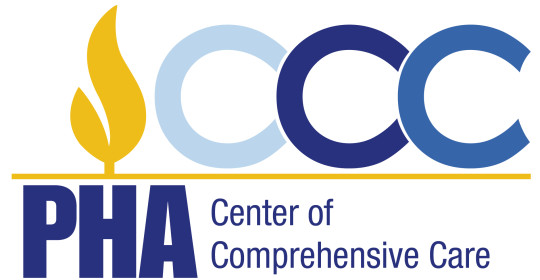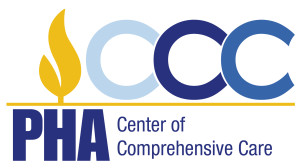
University of Cincinnati Medical Center Receives Center of Comprehensive Care Designation from Pulmonary Hypertension Association
The Pulmonary Hypertension Association (PHA) is establishing referral centers with expertise in the rare disease, Pulmonary Arterial Hypertension (PAH), with the goal of improving outcomes for these complex patients.1 Each candidate center is asked to complete a rigorous application process, and to make its facility and staff available for a comprehensive site review, conducted by a team led by a PAH physician and expert coordinator.1 The University of Cincinnati Medical Center recently attained the Center of Comprehensive Care (CCC) designation, as one of the first six institutions in the nation to be invited to apply, and is currently the only accredited PHA center in the state of Ohio.
Jean Elwing, MD, Director of the Pulmonary Hypertension Program, elaborates, “We have learned from several studies that close to half of PAH patients do not receive appropriate treatment.2 Referral to expert centers has been shown to optimize functional status and quality of life in PAH. The CCC designation, which adheres to the strictest standards, will help us do that.” The PHA certification program is modeled after the highly effective cystic fibrosis approach to standardization of care, and is rooted in evidence-based diagnostic algorithms and treatment guidelines set by the World Health Organization (WHO).
Elwing points out that the guidelines are designed to advance therapeutic goals for patients that include: 1) attainment of New York Heart Class 1 or Class II functional status, 2) optimization of right heart function, 3) achievement of good exercise capacity as measured by six-minute walk testing or other exercise assessment, and 4) restoration of acceptable hemodynamics measured by right heart catheterization, including near physiologic right heart pressures and cardiac output.3 She concludes, “In the end, our goal is to improve symptoms and exercise tolerance so that patients can return to full lives.”
Ten years of program building, including meticulous patient care, strict adherence to guidelines, strong collaborative relationships and a robust clinical trial program prepared the University of Cincinnati Medical Center team well for the PHA site visit. “The CCC designation serves as the ultimate external validation that the efforts of Dr. Elwing’s team have been successful,” says Francis X. McCormack, MD, Director of the UC Division of Pulmonary, Critical Care and Sleep Medicine. “Inclusion in the CCC Network will encourage regional referrals and further strengthen the PAH clinical trial program in Cincinnati, which has already participated in the development of important new diagnostic approaches and treatments for the PAH patient and research community.”
One such study is the Quality Enhancement Research Initiative (QuERI), now in its second phase, which seeks to improve the management of PAH.4 Successful completion of this study will define the state of adherence to current patient management guidelines, enable additional standardization in PAH treatment, and further the understanding of the natural history of PAH in the current era. The focus on evidence-based approaches to management and treatment is complemented by exciting new research that is uncovering promising drug combinations and molecular therapeutic targets. As Elwing says, “In the 1990s, we had one intravenous therapy to offer patients, and now we have a dozen options.” McCormack adds, “The strongest endorsement of the combined focus on standardization and trials that the PAH field has taken has been the remarkable improvement in outcomes for PAH patients over the last two decades.
 Jean Elwing, MD
Jean Elwing, MD
Director, UCMC Pulmonary Hypertension Program
Associate Professor of Medicine
Medical School: Saint Louis University – St. Louis, MO
(513) 475-8523
jean.elwing@uc.edu


